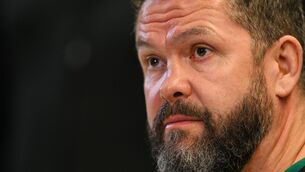The boys of ‘98
THE old Dubliners tune, 'Black Velvet Band' reverberated around the ground in the southwest London borough of Richmond. At the time, Irish rugby supporters weren't presented with too many chances to serenade their heroes and the visiting hordes knew that this was likely to be their last chance to do so on this weekend even if it was only Friday.
Indeed, Warren Gatland's seniors were bracing themselves for a hard day's work in Twickenham the following afternoon. No-one was in much doubt that by the end of it the visitors would be flying back to Dublin with the wooden spoon in their luggage. It would prove to be their third in three seasons.












